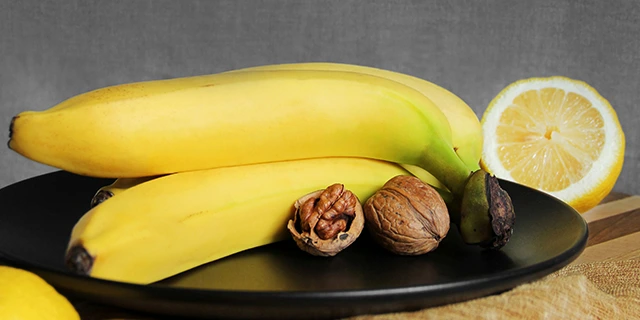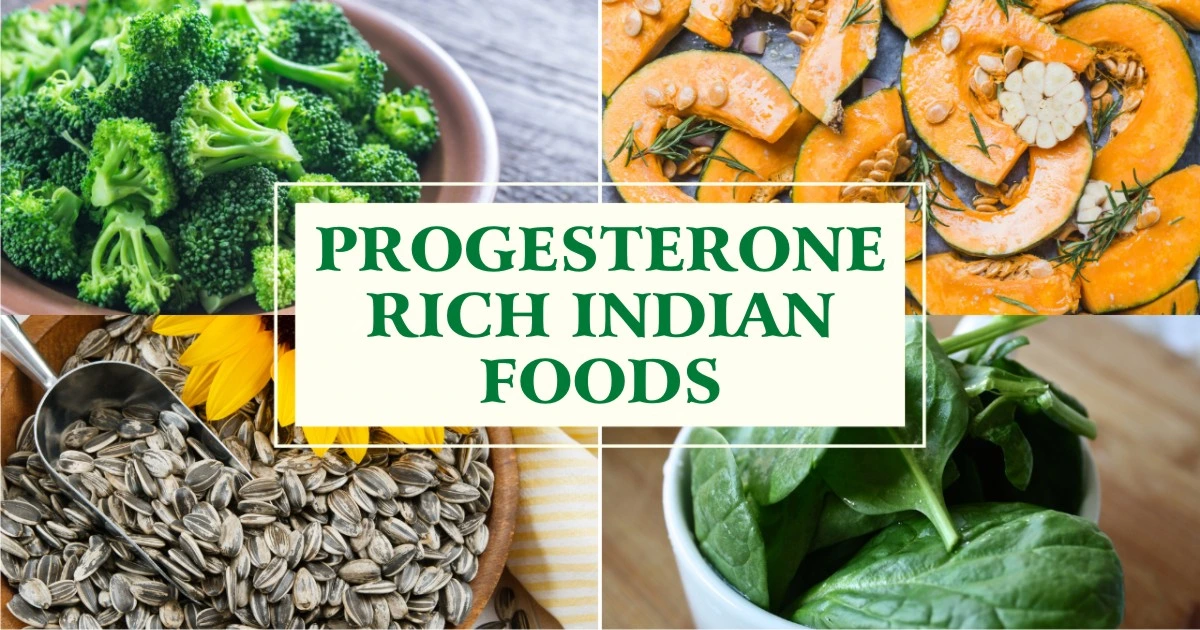
- Foods Rich in Vitamin B6: Vitamin B6 plays a crucial role in the production of progesterone. Foods rich in this vitamin include chickpeas, tuna, turkey, beef, sweet potatoes, bananas, and spinach. These foods can help increase progesterone levels naturally.
- Foods Rich in Zinc: Zinc is a mineral that helps support the production of progesterone. Foods rich in zinc include oysters, beef, lamb, pumpkin seeds, cashews, and mushrooms. Consuming these foods regularly can help maintain healthy progesterone levels.
- Foods Rich in Magnesium: Magnesium is another mineral that plays a crucial role in hormone balance. Foods rich in magnesium include spinach, almonds, avocado, black beans, and dark chocolate. Consuming these foods can help regulate hormone levels, including progesterone.
- Foods Rich in Omega-3 Fatty Acids: Omega-3 fatty acids are essential fatty acids that help support hormone balance. Foods rich in omega-3 fatty acids include fatty fish such as salmon, sardines, and mackerel, as well as flaxseeds, chia seeds, and walnuts. Consuming these foods regularly can help support healthy progesterone levels.
- Foods Rich in Vitex: Vitex, also known as chaste tree berry, is an herb that has been traditionally used to support women’s reproductive health. It can help regulate hormonal imbalances, including low progesterone levels. Vitex is available in supplement form, or as a tea or tincture.
Maintaining healthy progesterone levels is important for women’s reproductive health. Consuming foods that are rich in progesterone, as well as vitamins, minerals, and herbs that support hormone balance, can help regulate progesterone levels naturally. However, it’s important to talk to your doctor before making any significant changes to your diet or lifestyle to ensure they are safe and appropriate for you.
How To Increase Progesterone Naturally?
There are several natural ways to increase progesterone levels in the body:
1. Eat a healthy diet: Consuming a healthy and balanced diet is important for overall health, as well as hormonal balance. Eating foods that are rich in nutrients such as vitamins B6, magnesium, and zinc can help support healthy progesterone levels. Foods that are rich in these nutrients include bananas, chickpeas, spinach, almonds, cashews, and beef.
2. Exercise regularly: Regular exercise can help regulate hormone levels, including progesterone. It is recommended to engage in moderate-intensity exercise for at least 30 minutes a day, several times a week. This can include activities such as brisk walking, cycling, or swimming.
3. Manage stress: Chronic stress can disrupt hormone balance and lead to low progesterone levels. Practicing stress-management techniques such as meditation, yoga, deep breathing, or massage can help reduce stress levels and support healthy hormone balance.
4. Get enough sleep: Getting adequate sleep is important for overall health and hormone balance. It is recommended to aim for 7-9 hours of sleep per night. Sleep deprivation can lead to hormone imbalances, including low progesterone levels.
5. Consider natural supplements: There are several natural supplements that can help support healthy progesterone levels, such as Vitex (chaste tree berry), Maca root, and Dong Quai. It’s important to talk to your healthcare provider before taking any new supplements, especially if you are on medication or have a medical condition.
It’s important to note that while these natural remedies may help support healthy progesterone levels, they may not be effective for everyone. If you suspect that you have low progesterone levels or are experiencing symptoms of hormonal imbalances, it’s important to talk to your healthcare provider for an accurate diagnosis and appropriate treatment.
What are The Fruits Rich in Progesterone?

There are no specific fruits that are rich in progesterone. However, some fruits are rich in vitamins, minerals, and antioxidants that can support healthy hormone balance, including progesterone. Here are some fruits that may help support healthy progesterone levels:
- Bananas: Bananas are rich in vitamin B6, which is essential for the production of progesterone. Vitamin B6 helps support the luteal phase of the menstrual cycle, which is when progesterone levels are highest.
- Avocado: Avocados are rich in healthy fats and magnesium, which are important for hormone balance. Magnesium helps regulate the production of progesterone and can help reduce symptoms of PMS.
- Blueberries: Blueberries are rich in antioxidants and vitamin C, which can help support healthy hormone levels. Antioxidants can help reduce inflammation in the body, which can disrupt hormone balance.
- Pineapple: Pineapple contains bromelain, an enzyme that has anti-inflammatory properties. Inflammation can disrupt hormone balance, so consuming foods that are anti-inflammatory can help support healthy progesterone levels.
- Mango: Mangoes are rich in vitamin C and beta-carotene, which are important for hormone balance. Vitamin C helps support the adrenal glands, which play a role in hormone production.
It’s important to note that while these fruits may help support healthy hormone balance, they should be consumed as part of a balanced diet that includes other nutrient-rich foods. Additionally, it’s important to talk to your healthcare provider if you suspect that you have low progesterone levels or are experiencing symptoms of hormonal imbalances.
How to increase progesterone naturally Indian food?

There are several Indian foods that can help increase progesterone levels naturally. Here are some examples:
1. Turmeric: Turmeric is a popular spice in Indian cuisine that has anti-inflammatory properties. Inflammation can disrupt hormone balance, so consuming turmeric can help support healthy progesterone levels. Turmeric can be added to curries, soups, and stews.
2. Ginger: Ginger is another spice that has anti-inflammatory properties and can help support healthy hormone balance. It can be added to teas, smoothies, and stir-fries.
3. Lentils: Lentils are a good source of plant-based protein and fiber. They are also rich in vitamins and minerals, including vitamin B6, which is essential for progesterone production. Lentils can be added to soups, salads, and curries.
4. Fenugreek: Fenugreek is an herb commonly used in Indian cuisine. It has been shown to help regulate hormones and improve menstrual cycles in women. Fenugreek can be added to curries, stews, and spice blends.
5. Almonds: Almonds are a good source of healthy fats and vitamin E, which can help support healthy hormone balance. They can be added to smoothies, salads, and Indian desserts.
It’s important to note that while these Indian foods may help support healthy progesterone levels, they should be consumed as part of a balanced diet that includes other nutrient-rich foods. Additionally, it’s important to talk to your healthcare provider if you suspect that you have low progesterone levels or are experiencing symptoms of hormonal imbalances.
- The Benefits of Applying Curd On Hair
- How to Cure Lost Voice Overnight? Effective Home Remedies to Cure a Lost Voice Overnight
- How To Cure Lactose Intolerance? Strategies and Lifestyle To Managing Lactose Intolerance
- The Health Benefits of Onion
- 11 Effective Home Remedies for Healing Anal Fissures
- How To Cure Neck Pain Fast At Home Remedies?
- Pumpkin Health Benefits For Women And Men
- How To Eat Chia Seeds | A Guide on How to Eat Chia Seeds for Optimal Nutrition and Flavorful Wellness
- What Is Moringa and its Health Benefits?
- Lion Mane Powder: Lion Mane Powder for Maximum Results, Side Effects
















